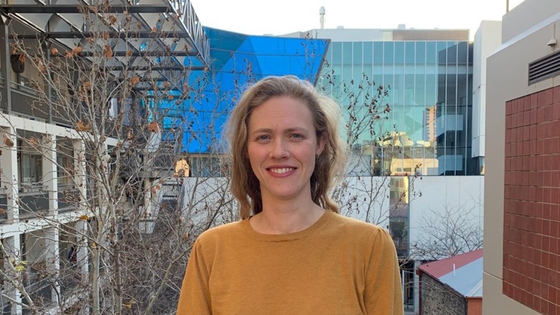
Q&A with Associate Professor Lisa Moran
Associate Professor Lisa Moran leads the Healthy Lifestyle Research Program within the Monash Centre for Health Research and Implementation at Monash University. Associate Professor Moran’s area of interest involves optimising lifestyle risk factors in women of reproductive age.
Her research aims to improve women’s heart health by helping them to maintain or achieve a healthy weight. Her specific areas of research within this field include infertility and polycystic ovary syndrome, and delivering lifestyle interventions at key life stages including before conception, during pregnancy and after delivery.
Associate Professor Moran received a 2020 Women and Heart Disease Strategic Grant focusing on reducing the impact of cardiometabolic conditions on Australian women following pregnancy. She hopes to achieve this by identifying women most at risk and supporting them to manage their cardiovascular disease risk factors in the community.
What are you currently researching?
Women diagnosed with certain pregnancy-related conditions have a higher risk of cardiovascular disease later in life. These conditions are sometimes referred to as cardiometabolic conditions and include blood pressure conditions (gestational hypertension and pre-eclampsia), foetal growth restriction, gestational diabetes and spontaneous preterm birth. We need to understand how best to identify and support women with these conditions to reduce their risk of cardiovascular disease in the future. Our research involves screening women for cardiovascular disease risk factors, both during pregnancy and after pregnancy. This is so we can identify women at higher risk of cardiovascular disease. We will use existing registries of women with gestational diabetes. We will expand these registries to include other cardiometabolic conditions in pregnancy, so we can screen and follow up these high-risk women. We will also adapt the existing Diabetes Victoria lifestyle management program (Life!) to help prevent type 2 diabetes and cardiovascular disease in these women at highest risk. This work is crucial to develop targeted screening, prevention and treatment opportunities during and following pregnancy.
What difference will your research make to people’s cardiovascular health in Australia?
This research has important implications for improving the screening and management of cardiovascular disease in young high-risk women. We will be able to support women following pregnancy to help them maintain good heart health into the future.
What motivated you to do your research?
I have always been passionate about working with younger women early in life to reduce their risk of chronic diseases, by optimising lifestyle risk factors, including weight management. Working with people earlier in life has huge implications for preventing chronic disease, including cardiovascular disease.
Are there any recent achievements or discoveries you can share with us?
Earlier research funded by a Heart Foundation Future Leader Fellowship has allowed me to develop evidence-based models of care for managing lifestyle risk factors in women with polycystic ovary syndrome. This care is delivered through clinics where women are supported to manage their cardiovascular disease risk factors, including optimising weight, diet and physical activity. We have evaluated the first version of these clinics and are currently implementing the second version, which will include more tailored follow up and management of lifestyle risk factors.
What role has Heart Foundation funding had in your career journey?
The Heart Foundation is committed to reducing the burden of cardiovascular disease in women. Women’s heart health is an under recognised and under researched area, which contributes to poorer cardiovascular outcomes in women compared to men. The Heart Foundation is funding important research like mine to reduce the heart health gap between women and men. The Heart Foundation is also committed to ensuring consumers have a voice in guiding which research projects receive funding. This is crucial as it means I can consider what my research will mean for women and what impact it will have on their lives.
Do you have a message for Heart Foundation supporters?
Thank you to the Heart Foundation and donors for funding this important research. This research will allow us to work with women to help them live longer, healthier lives.
You might also be interested in...

Improving screening and management of women with cardiometabolic conditions during pregnancy
Certain pregnancy related-conditions indicate an increased risk of heart disease later in life for women.

Optimising weight management in women of reproductive age
Optimising weight management in women of reproductive age

Where your funds go
Every donation to the Heart Foundation helps in the fight against heart disease, which is the number one killer of Australians.
Last updated09 January 2026